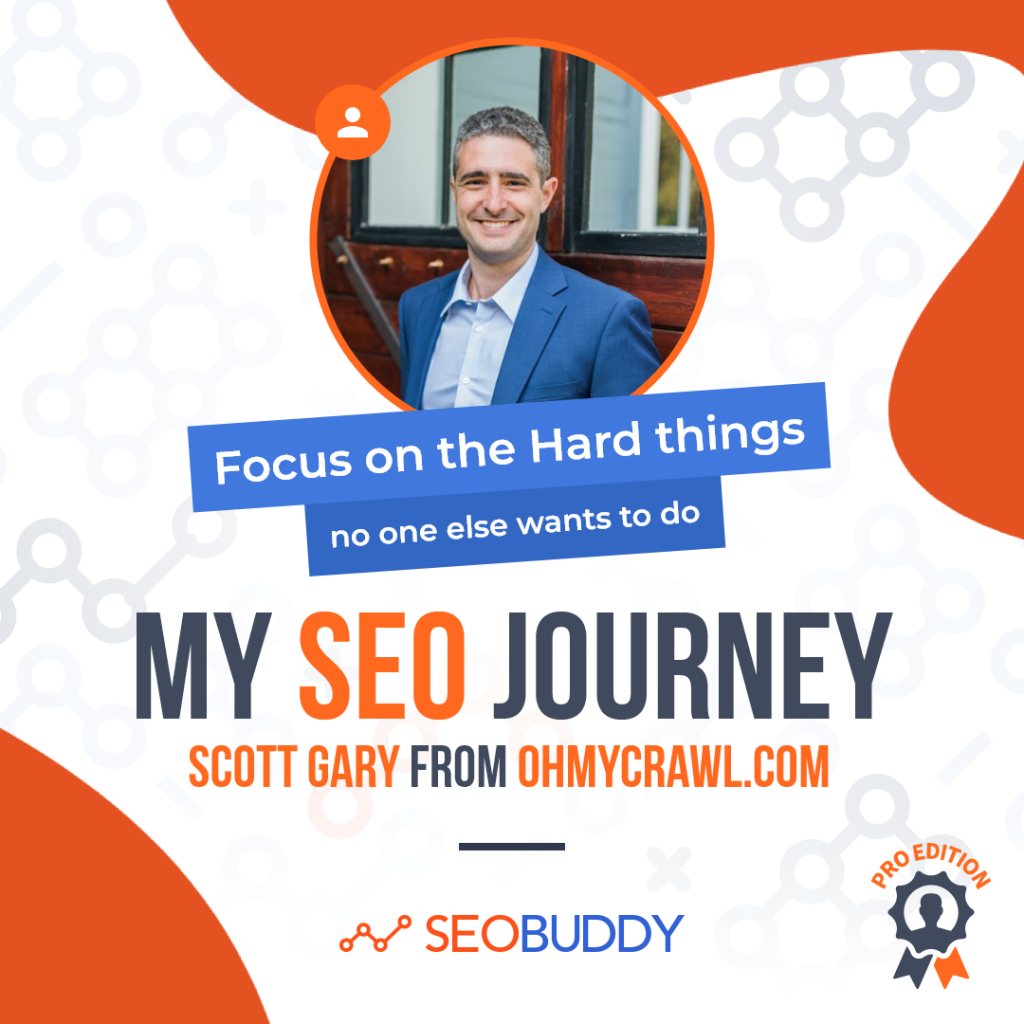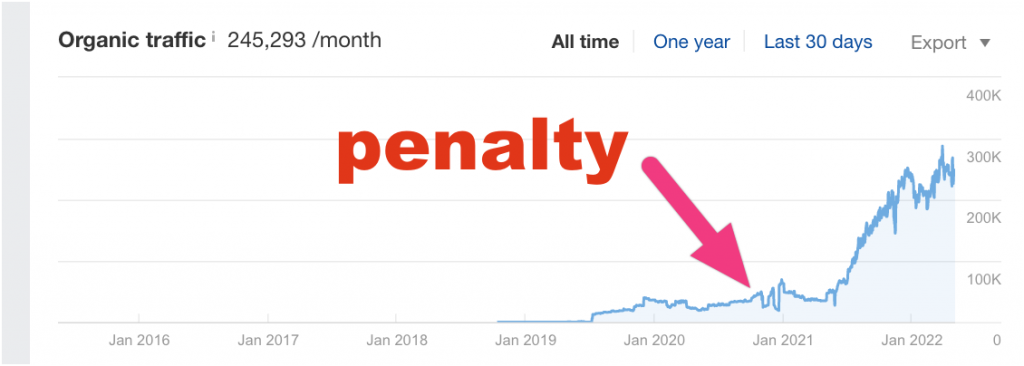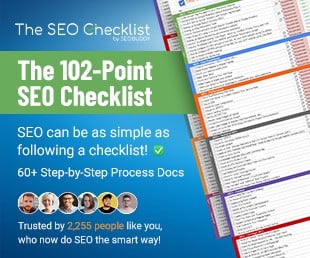My SEO Journey [Pro Edition]: Scott Gary from ohmycrawl.com – Focus on the Hard things no one else wants to do
My SEO Journey [PRO Edition] is a series where professionals of the SEO Industry, Digital Marketing, or Web Design, share their honest SEO Journey filled with failure and success, and most importantly proven results. Episode #82 features Scott Gary from Oh My Crawl.

Hey! I’m Scott and a consultant who specializes in technical SEO, mainly Javascript driven websites.
In short, as Javascript has completely overtaken the internet, it can be used in both frontend and backend programming. The downside is it’s not the ideal rendering format for SEO and search engines like Google often skip out on rendering important content.
Ironically, a standard Wordpress site has fewer html rendering & technical issues.
For a quick background on our company, most SEOs use Wordpress, focus on link building and have a poor understanding of how web technology works. We take the opposite approach and can speak one on one with programmers.
We focus mainly on Audits, we find it takes a few rounds with developers to really dial in javascript dirven websites.
What’s your backstory and how did you come up with the idea?
I was always interested in programming. I noticed most of the highest paying jobs all required extensive javascript knowledge and I had previously studied the programming language for around a year.
Not to boast, I’m not a professional programmer, but I’ve yet to meet another full time SEO who has a similar understanding of how modern frameworks operate.
I also made sure to work at places where this was a requirement of the job. I personally believe it’s better to learn from someone else then to figure it out all on your own. I put a high value on mentorship.
To make a long story short, I worked at companies managing a portfolio of SEO driven websites with millions of visitors. That’s where I learned the same stuff everyone else knows, ie link building, onpage SEO, content production, etc.
When it came time to break off on my own, I wasn’t really into doing the “same as everyone else.”
I noticed that becoming a technical SEO consultant would help me stand out from other companies, as fate would have it a recruiter came along and invited me to a pretty kick ass job where I’d specialize in the exact thing.
In short, I just kinda followed my interests.
Since launch, what has worked to attract more organic traffic?
When it comes to growing websites with organic traffic. I personally believe it’s important to “pull all the levers.”
In my experience, SEOs tend to focus on “one” of the ways to grow traffic. Most SEOs tend to focus on link building and not much else.
When I took over this website it focused only on link building and was actually penalized:

Here is the items we focused on, as an aside for newer SEOs, in my option, you have to develop the following skills, meaning with each of these you can drive organic growth:
- Internal linking & Website Structure – This is the most under leveraged SEO strategy I’ve identified over the past year or so, namely internal linking.
- Onpage Optimization at a high level, mastering the tools you use and really understanding how they work. I personally use Cora.
- Keyword Research – Understanding which keywords will and will not rank for your website or a clients website.
- Drive Organic Clicks – Learning how to pick keywords that are kinda easy and will drive organic clicks and therefore build trust. Things like social media shares are nice to have, but organic clicks are better for trust (in my opinion.)
- Link Building – Kind of obvious, something everyone needs to learn. I personally prefer to focus on branded type anchor texts and linking to “natural” content. Effectively, what would a ‘real’ website do?
- Javascript – If you’re a teche’ie like me, I suggest learning how single page application SEO works and debug Javascript issues.
I’m sure the list is much longer, but in my option you should focus on driving results with each one of those areas.
You should keep in mind, this isn’t something you’ll master in an afternoon. I personally spent at least 1 year really focusing on each one of those subjects. Learning these skills is a marathon, not a sprint.
I’d just start with the one you find the most interesting.
Have you learned anything particularly helpful in your SEO Journey?
I think I understand your personal limitations. For example, I’m a terrible growth hacker and black hat /gray hat SEO just isn’t for me. I find it to be too much of a hustle and prefer to focus on more long term strategies.
I’m personally better at getting really good at a handful of skills, as opposed to some skill that will make you a million dollars in 24 hours. I’m better at kind of sitting there and suffering until I get it ha.
What worked for me was really just hanging in there until it happens.
Mentors are very powerful, I think getting a job is underrated, working someplace where you’ll really learn everything you need to know.

Now it’s time to discover the other 102 steps that will get more organic traffic flowing to your website. Get the SEO Checklist here.
Want to get a sneak peek of what it looks like?
Enter your email and get a free demo version of the SEO Checklist.
What SEO tools do you use for your business?
The tools I use and recommend becoming highly proficient at:
- Cora
- Hands down the best onpage SEO tool. Has a learning curve.
- Screaming Frog
- My favorite crawler that is limited by your personal creativity. Amazing for debugging sitewide SEO issues.
- Ahrefs
- Just amazing for keyword research and backlinking stuff.
- Scrapebox
- I find it to be similar to Screaming frog, it’s kinda limited by your creativity. For example I use it for both onpage and offpage SEO.
- Search Console
- Free and I just can’t get enough of it. To my surprise, most SEOs focus on Google Analytics, Search Console is much better.
- SurferSEO
- Has nice charts to show to clients ha. I find it helpful to explain SEO things to non-SEO people. Very user friendly.
- Google Sheets
- Gotta organize all the data from the above tools 😀
- Upwork.
- Last but not least, learning how to manage people to make all your strategies come together.
I suppose the tools I favor are not very easy to use, I find the easy tools to use everyone else is already using, therefore there is no advantage.
My opinion, advanced SEO really comes down to your ability to interpret data sets no one else is really looking at. Therefore you have to use more difficult tools most people will be scared off by. For example, Screaming Frog has advanced features most people don’t even realize.
Can you share your efforts related to Link-Building?
Mostly, I focus on list building. For example using scrapebox to identify websites that are in your target niche.
What I do is that I scrape large lists of websites with scrapebox, export that list into Screaming frog and pull the title tag of the homepage.
Then I filter all the ones that have something to do with my target niche.
I find, once you have a nice list of websites, the rest kinda comes together.
What have been the most influential books, podcasts, or other resources?
Honestly, I think working somewhere with strong mentorship is the way to go or at least that’s what worked for me. You gotta work day in and day out with someone who “gets it” and make their process your own.
You can take a course to get a general understanding of their process, but you gotta work for them to see how they troubleshoot.
What’s the next step in your SEO Journey?
Currently I’m highly focused on SEO testing. Really seeing what does and does not work in a repeatable format. I generally run around 1-3 tests per week.
Most SEO is opinion based, I’m personally tired of “ideas” or what you think worked. I prefer to run in house tests, it’s also a competitive advantage. Saying you “test” to your clients and have data about the tests you ran to present to your clients are two different things.
Where can we go to learn more?
If you want to check us out, please visit ohmycrawl.com for more information.
There I blog a few times per month on technical SEO stuff.

